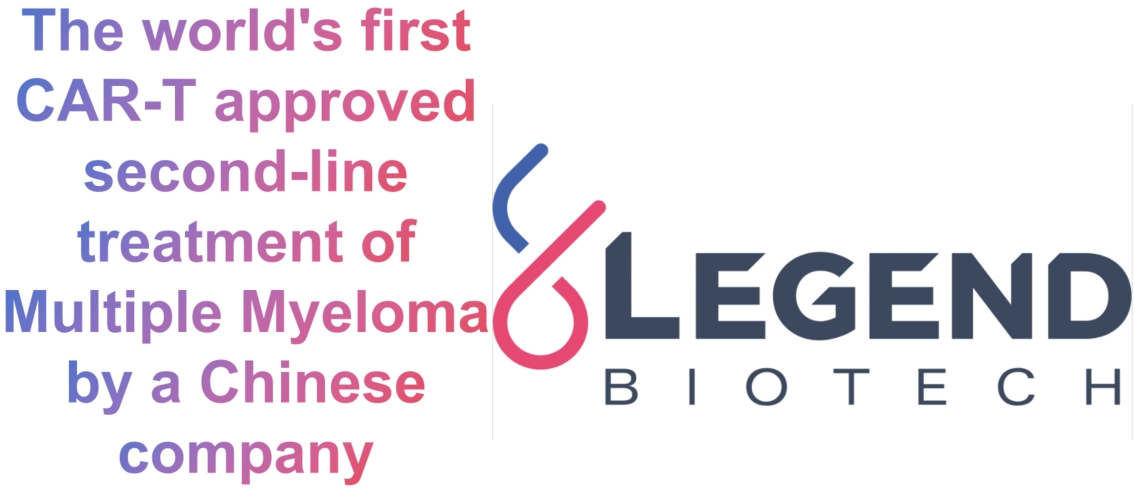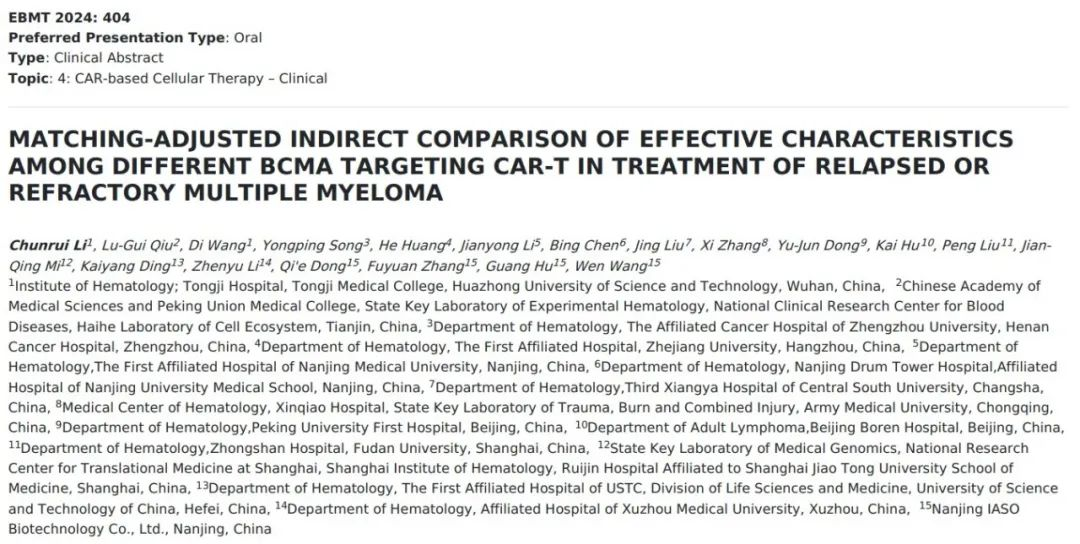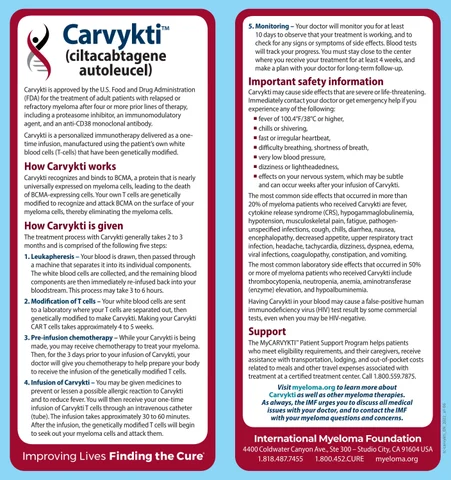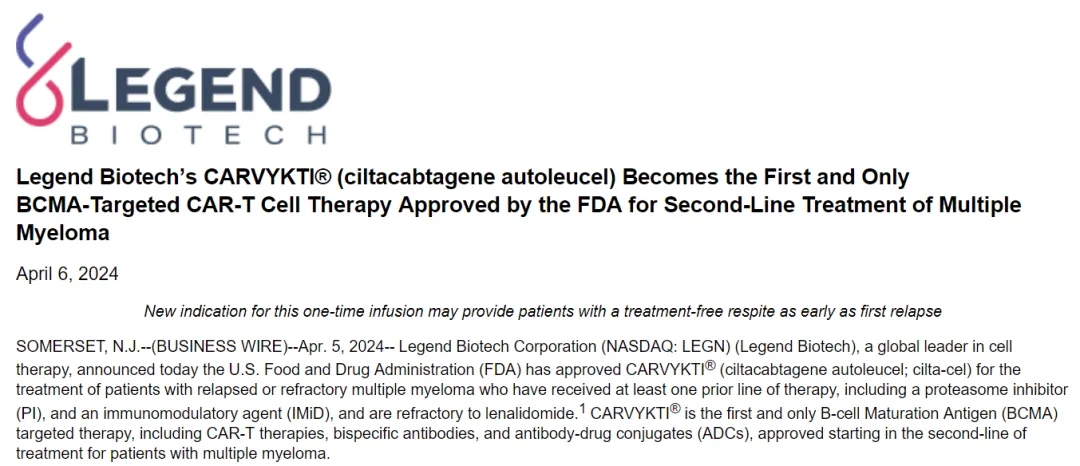
On August 19, 2021, Bristol Myers Squibb announced that the European Commission (EC) has granted conditional marketing authorization for Abecma (idecabtagene vicleucel; ide-cel).

On August 19, 2021, Bristol Myers Squibb announced that the European Commission (EC) has granted conditional marketing authorization for Abecma (idecabtagene vicleucel; ide-cel).

On April 4th, 2024, Abecma® (idecabtagene vicleucel) received approval from the U.S. Food and Drug Administration (FDA) for the treatment of adult patients with relapsed or refractory multiple myeloma.

CAR-T cell therapy has emerged as a novel immunocellular therapy in recent years. BCMA-targeted CAR-T cell therapy has become a standard treatment for relapsed/refractory MM, with some patients achieving the possibility of “clinical cure.”

The world’s first #CART therapy approved for second-line treatment of multiple myeloma is claimed by a Chinese pharmaceutical company #Legend Biotech How to advance #CARTcell therapy to frontline treatment is the goal every CAR-T company strives for. On April 5, 2024, local time, Chinese pharmaceutical company Legend Biotech (LEGN.NS) shared exciting news as the U.S. Read More

#EBMT Conference Reveals the Best CAR-T Therapy for Multiple Myeloma – Equecabtagene Autoleucel Introduction: In recent years, there has been a breakthrough in the research of #CART therapy for relapsed and refractory #multiplemyeloma (RRMM). This treatment method holds promise to address the challenges of inadequate response depth and short duration of response in #RRMM patients, Read More

Carvykti (Ciltacabtagene Autoleucel) is a B-cell maturation antigen (BCMA)-directed genetically modified autologous T-cell immunotherapy for the treatment of adult patients with relapsed or refractory multiple myeloma after four or more prior lines of therapy, including a proteasome inhibitor, an immunomodulatory agent, and an anti-CD38 monoclonal antibody.

Ciltacabtagene Autoleucel (Carvykti, cilta-cel), a chimeric antigen receptor T-cell (CAR-T) therapy targeting B-cell maturation antigen (BCMA), has been approved by the FDA on April 6, 2024, for the treatment of relapsed or refractory multiple myeloma (RRMM) in patients who have received at least one prior line of therapy, including a proteasome inhibitor (PI) and an immunomodulatory drug (IMiD), and are refractory to lenalidomide.
By using our site, you agree to our Terms and Conditions and Privacy Policy.Advanced Medicine In China does not provide medical advice, diagnosis, or treatment. The information provided on this site is designed to support, not replace, the relationship that exists between a patient/site visitor and his/her existing physician.
© Copyright 2023 Advanced Medicine In China. All rights reserved.